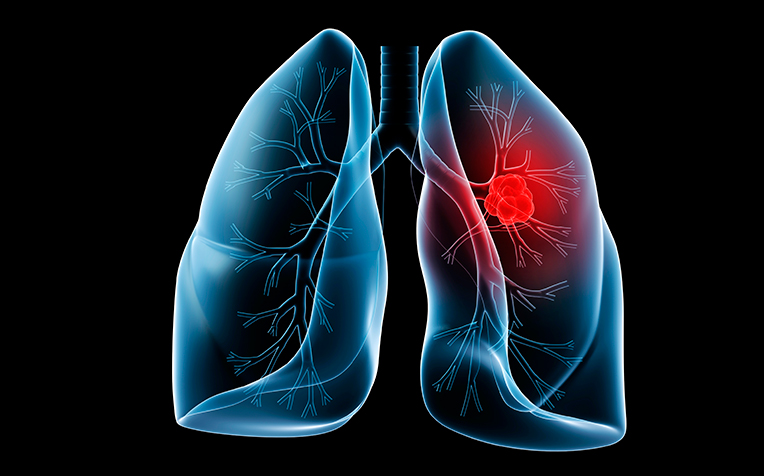HealthXchange will NEVER ask you to transfer money over a call. If in doubt, call the 24/7 ScamShield helpline at 1799, or visit the ScamShield website at www.scamshield.gov.sg.
Lung Cancer: Symptoms and Diagnosis

Early symptoms of lung cancer may be a cough that does not go away.
Clinical Associate Professor Daniel Tan, Senior Consultant, Division of Medical Oncology, National Cancer Centre Singapore (NCCS), a member of the SingHealth group shares on the symptoms and diagnosis of lung cancer.
Symptoms of lung cancer
Lung cancer usually doesn’t have any symptoms in the early stages. At an advanced stage, patients may experience the following symptoms:
- A persistent cough that changes or worsens over time
- Shortness of breath and wheezing
- Bloodstained sputum or phlegm
- Chest pain
- Recurrent chest infections and fever
- Headaches
- Sudden and unexplained weight loss
- Loss of appetite
- General weakness and tiredness
- Bone pain
“A persistent cough, wheezing and chest pain can be caused by other conditions as well and may not necessarily indicate lung cancer. It is therefore important to consult your doctor if any of the symptoms of lung cancer persist or are bothering you,” advises Clin Assoc Prof Tan.
Diagnosing lung cancer
If you have symptoms of lung cancer, your doctor will ask you to undergo the following tests:
- An X-ray and/or CT (Computed Tomography) scan of the lungs
- Sputum exam
- Bronchoscopy – a specialist uses a flexible tubing to examine the airways and possibly do a biopsy (removing small pieces of tissue for examination)
Once lung cancer has been diagnosed, your doctor will determine the stage of the cancer.
- Stage 1 – Cancer is limited to the lung and the tumour is smaller than 5cm in width
- Stage 2 – Cancer may have spread to the chest wall or nearby lymph nodes
- Stage 3 – Tumour may have grown large in size and may have affected other organs or lymph nodes that are further away
- Stage 4 – Cancer may have spread to the other lung or distant areas of the body
Determining the stage of the lung cancer may require further tests such as a bone scan, CT scan, positron emission tomography (PET) scan or an MRI (magnetic resonance imaging).
“Most people diagnosed with lung cancer are over the age of 40. However, the onset of the disease may be years earlier,” says Clin Assoc Prof Tan.
Ref: K21
Check out other articles on cancer and lung cancer:
Must-Eat Foods for Cancer Patients
New Study Links Genetic Diversity in Asian Lung Cancer and Resistance to Treatment
Why Non-Smoking Asian Females Can Still Be at Risk of Lung Cancer
Contributed by
Related Articles
Conditions & Treatments
Public Events
Get the Health Buddy App
© 2025 SingHealth Group. All Rights Reserved.


















 Get it on Google Play
Get it on Google Play